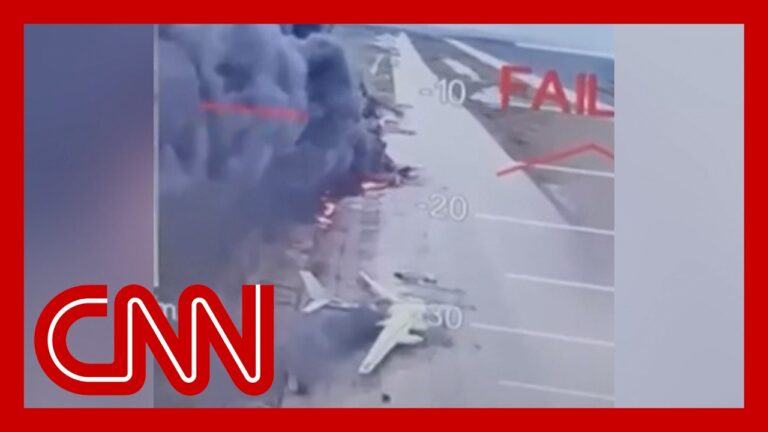Video at the bottom!
Russian and Ukrainian officials met in Istanbul on Monday for a second round of peace talks, but discussions were short-lived and produced no significant breakthroughs. While both sides agreed to explore a new prisoner exchange, they remained rigid on the issue of a ceasefire. Moscow upheld its demands for Ukraine to surrender four regions it attempted to annex after the 2022 invasion, as reported by Russian state media. The talks occurred just a day after a Ukrainian drone strike operation targeted strategic airfields deep within Russia. Ukrainian President Volodymyr Zelensky praised the operation, claiming it was necessary to demonstrate military strength as Russia continues its aggression.
According to reports, Ukrainian drones managed to reach critical positions, potentially threatening the Kremlin’s most valued bombers. The operation resulted in 117 drones striking 41 long-range bombers across Russia. A Ukrainian security source highlighted the impact on morale, suggesting that such strikes could alter Russia’s calculations in future peace negotiations. The operation, dubbed “Operation Spider Web,” demonstrated Ukraine’s capability to inflict substantial damage on Russia’s military infrastructure, particularly air assets crucial for missile operations against Ukraine.
Retired Colonel Cedric Leighton offered insights into the significance of the drone strikes, noting that the targeted aircraft, primarily the Tupolev 95 and 22, were integral to Russia’s military operations and strategic deterrent capabilities. He characterized this attack as a severe setback, emphasizing that losing such aircraft would complicate Russia’s ability to continue its military campaign in Ukraine effectively. The operation took 18 months of meticulous planning, with the drones concealed in mobile wooden shelters before executing their missions.
Leighton further explained that the success of the strikes demonstrated a vulnerability in Russian defenses, especially considering the geographical spread of the targets, including regions far into Siberia and the Arctic. The planning and execution of the operation reflected a high degree of sophistication and operational effectiveness, reminiscent of World War II strategies. Despite the benefits derived from U.S. intelligence, he acknowledged that Ukraine’s extensive internal intelligence network enabled it to carry out such operations effectively against Russian forces.
The psychological impact of the operation on Russian military leadership could lead to a reevaluation of their approach to the ongoing conflict, especially as Ukraine continues to demonstrate its capacity to launch unexpected attacks. As discussions about the ramifications of the strikes unfold, the broader implications for Russian military strategy and morale remain critical points of analysis.


